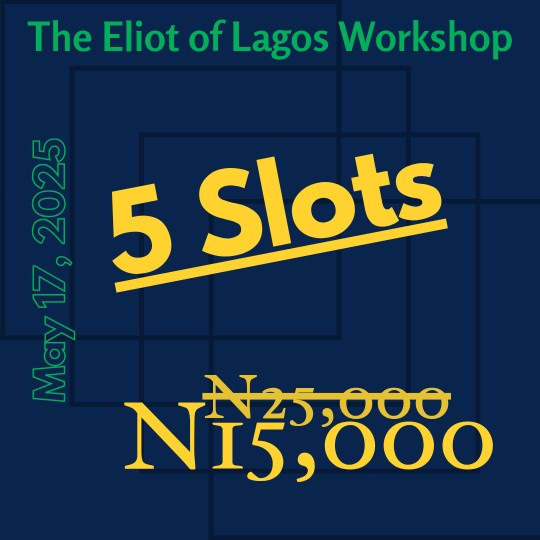I am way behind on my reading for the year. If I go on reading at the current pace, I will end up doing very few books. But I have read some good books this year, and I want to share a few of them with you in this post.
I’ve read a few plays. One of them was Henrik Ibsen’s Rosmersholm—a play with a weird, weird ending. It reminded me of Alfred Hitchcock’s Rebecca (1940). Ibsen’s work has a character called Rebecca, who is a resident at the titular house. In both plays, the wife is dead, and the husbands (John Rosmer in Ibsen and Maxim de Winter in Hitchcock) are navigating a new relationship. There is this plain intensity in Ibsen’s dialogue—the intensity of a dubious intelligence, maybe.
The last time I was in Ibadan, after visiting the critic Ancci at his place, we both stopped at a stall in front of the University of Ibadan where I picked up a paperback edition of Shakespeare’s Complete Works. I have had a hardback for almost ten years, but it is harder to carry around and the print is pressed together on the page (though I like the difficulty of reading a difficult poet in a difficult print: it is a double exercise and serious delight). The same day I got the copy I began reading Shakespeare’s Troilus and Cressida, and loved it. I loved the insults by Thersites.
The only American poet I have read this year is Robert Frost—Early Poems (which includes the first three books, with an introduction by Robert Fagan). I recommend Frost. Frost is a poet in whom one finds something to use—something to use in an almost spiritual sense. There is a rugged solace in the work. Next to Shakespeare, I think Frost is the poet I admire the most.
I love Thomas Hardy’s poetry (I’ve been returning to “Departures”). This year, I read his novel, Under the Greenwood Tree. It is the first novel I have finished in a while, and it did not take long to get to its end. If you have not read the novel, I think you would love it. It’s a sweet, vivid story.
In criticism, I’ve read (among a few others) Philip Sidney’s The Defense of Poesy and F.R. Leavis’s New Bearings in English Poetry. Leavis was a brilliant critic, but he was wrong about Auden. Nonetheless, his book is illuminating. Much of it is a kind of exegesis but sometimes a phrase comes around that catalyzes something previously stored up. Sidney’s work is both apologia and offensive—it is partly an attack on two centuries of English literature at the time. Sidney praised Chaucer but “bashed” much of what his predecessors and contemporaries were doing. Apparently, the mediocrity in Nigerian and African poetry this past hundred years is not a new thing.
But the best thing I have read this year has to be The New Oxford Book of English Poetry: 1250—1950 edited by Helen Gardner. I found this book at my bookseller’s in Abeokuta, the same day I had the interview for the profile. I listened to Kobe Bryant around this time. He said something along this line: “If you wake up by 9 and begin training by 11, you train from 11am to 2:30pm and go home to rest. Then you train from 2:30 to 5:30 and rest . . . You get to train two, three times a day. But if you start by 4am, you train from 4 to 6:30. Rest. You train again from 8 to 10:30 . . . Look how much training you would get done in a day.”
The anthology by Gardner is about a thousand pages long, and I am an average reader (speed-wise). So I took Kobe’s notion and read it for maybe three hours every morning. I loved watching the dawn push its lit arms into my room as I read Marlowe or Wyatt and people rising, with feet clapping on dewed earth. I’d brew my coffee and drink as I read. After a while, I’d go outside and sit on my stoop (lighting a coil to keep the tiny insects away from my legs) and go on reading—I read a large part of the book out loud. I sound like Hill when I read, enunciating archaic English: My neighbor once asked me if I was reading English or some other language. The anthology is important for anyone who wants to get a feel for the last 700 years of English poetry, and for those who need a map.
It was through the anthology that I first encountered the work of John Dryden. I’d known the name but never read the poetry. I read excerpts from Absalom and Achitophel. After reading the anthology, I went to find this scathing political satire by Dryden and read it. I recommend it.
The last thing I’d recommend of what I have read this year would be Baudelaire’s Les fleurs du mal—in a good translation by Roy Campbell. I need to read him in the original but my French is late. But find Les fleurs du mal—perhaps in another translation—if you haven’t read it.
Note: The Eliot of Lagos Workshop is a week from now, and I look forward to seeing you if you are in Lagos. Applications for the workshop are still open. Some slots are still available at the discounted price announced last time. Thank you to those who have applied and to those who sponsored.
For inquiries, please send me an email: ogunyemiernest@gmail.com. Thank you. 🔹



